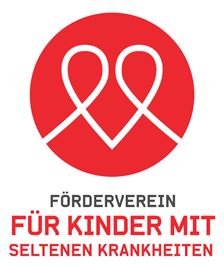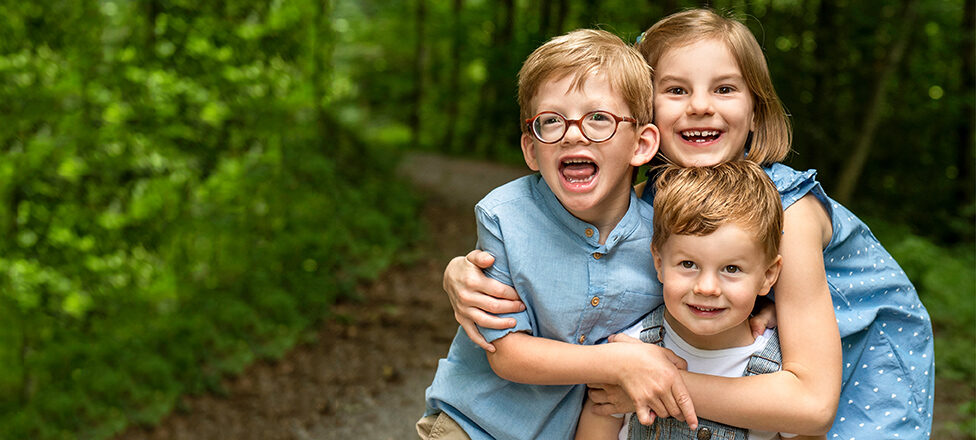3. KMSK knowledge book "Rare diseases - therapies for children and support for families"
In the third KMSK Knowledge Book on Rare Diseases, we show which specific support options are available in everyday life, which forms of therapy have proven successful for affected families and where they can get help if they lose their way in the administrative jungle. Time and again, we hear that affected families are given the wrong information or no information at all about support options, even though the services are available. The families affected tell us what concerns them, what challenges they face and where they would like more support. On the other hand, there are doctors, therapists and specialists who, in our interviews, give their expert opinions on the various topics and point out concrete support measures.
the dialog groups are (newly) affected families, gynecologists, midwives, pediatricians, family doctors, specialists such as geneticists, ophthalmologists and otologists, therapists, psychologists, hospital staff, health insurers, health politicians, teachers, researchers at universities, pharmaceutical employees, IV employees, the media and the general public. For themwe want to provide them with more knowledge and understanding on the subject of rare diseases in children. With the third knowledge book, we are once again setting an example for the approximately 350,000 children and young people affected in Switzerland and hope that we can create even more knowledge and understanding. For all the young patients, their parents and their siblings.
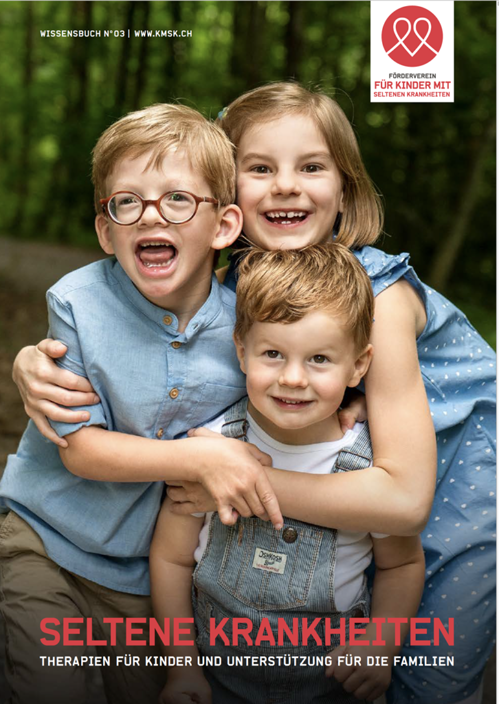
Yours sincerely
Förderverein für Kinder mit seltenen Krankheiten (KMSK)
Manuela Stier, Initiator/Managing Director KMSK
Daniela Schnuki, Advisory Board KMSK/affected mother
Prof. Dr. med. Andreas Meyer-Heim, Managing Director, Affoltern Children's Rehabilitation Clinic
Thanks to the generous support of our patrons, we are pleased to be able to offer the KMSK
Book "Rare Diseases" free of charge as a print copy and for download:
Knowledge Book N° 3 (2020) Download
"Rare Diseases - Therapies for Children and Support for Families"
Print copies of the KMSK knowledge book N° 3 are no longer available!
Greeting: President (KMSK) Prof. Dr. Med. Anita Rauch
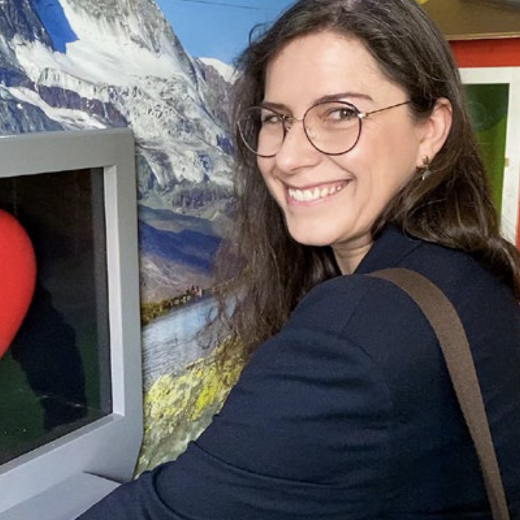
Therapeutic success thanks to advances in genetics
Most rare diseases are genetic, and only a fraction of them have been researched to date. However, a lot is currently happening in this area and over 200 new disease genes are discovered every year. There are currently around 5000 genes that can be clearly assigned to a genetic disease. Over 300 rare diseases can currently be treated effectively thanks to new drugs.
President KMSK, Director and Full Professor of Medical Genetics Institute of Medical Genetics University of Zurich
Statements: Government Councillor Dr. Lukas Engelberger
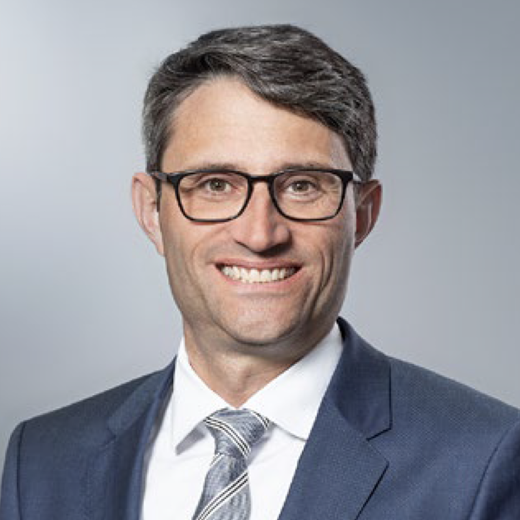
Centers for rare diseases enable faster diagnoses
On 2 March 2019, I was able to attend the International Day of Rare Diseases in Basel, which was organized by ProRaris, the umbrella organization for rare diseases, as well as the University Children's Hospital of Basel and the University Hospital Basel with the theme "From isolation to networking". I was able to see first-hand the increasing importance of rare diseases and learned that rare diseases are actually not rare at all.
Head of the Basel-Stadt Department of Health, President of the Swiss Conference of Health Directors (GDK)
Statements: National Councillor Ruth Humbel
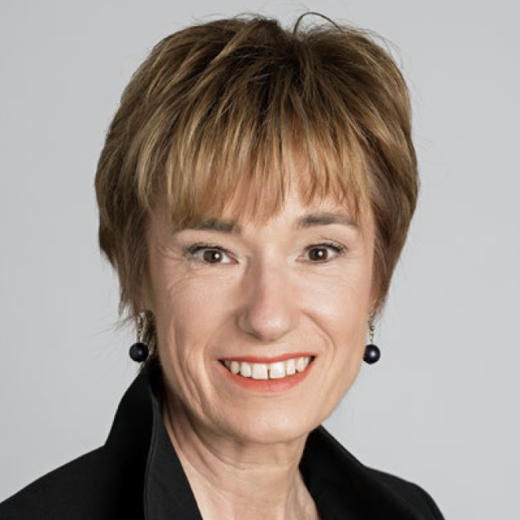
People with rare diseases have achieved a lot
it has been 10 years since I submitted a postulate calling for a national strategy to improve the health situation of people with rare diseases. As a result, various stakeholders, including university hospitals, patient organizations and pharmaceutical associations, came together to form the "IG Seltene Krankheiten" (Rare Diseases Association). The aim was and is to ensure that patients with rare diseases receive the same level of medical care throughout Switzerland.
President of the IG Rare Diseases
Statements: President Pediatricians Switzerland Dr. med. Marc Sidler
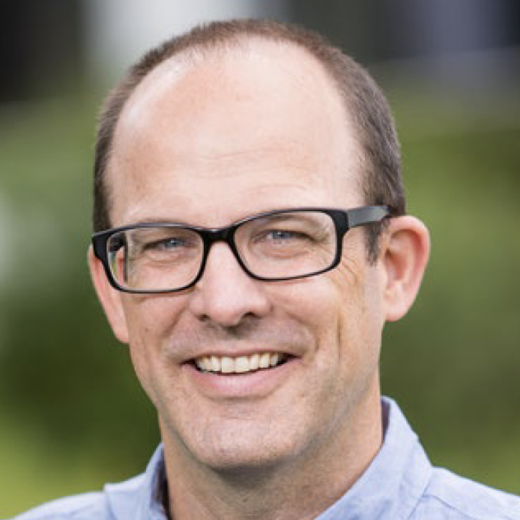
Rare diseases concern us all - including the pediatricians in the practice
Parents with a child suffering from a rare disease will often ask themselves: "Why didn't the pediatrician think of this earlier? At the check-up at 6 months, he mentioned that something was not normal ...." Assessing children's development is part of our everyday clinical practice. Over the course of time, the child shows maturation processes in various areas, which proceed at different speeds.
President of Pediatricians Switzerland - Professional Association of Pediatricians in Practice, Binningen
Statements: Initiator/Management (KMSK) Manuela Stier
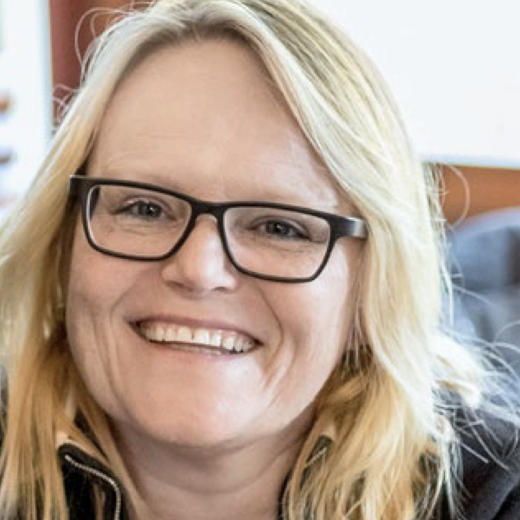
Supporting affected families on their journey
in 2012, I met a little boy suffering from the rare and fatal Niemann-Pick C disease. Through his parents, I experienced what it means when your own child is affected by a rare disease. I have seen the immense challenges they have to face on a daily basis and how helpless and alone they feel at the same time. At that time, the topic of rare diseases was barely present in the public eye and affected families were completely on their own in many respects. I wanted to change that, so I founded the support association for children with rare diseases in 2014.
Initiator/Managing Director of the Support Association for Children with Rare Diseases
Introduction to the topic: Chief Physician Children's Rehab Switzerland Prof. Dr. med. Andreas Meyer-Heim
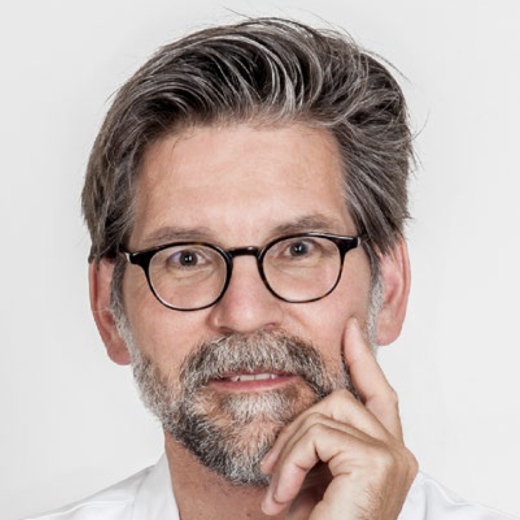
Long-term therapies as a challenge for families
Affected families often find themselves in a jungle of therapies. A halfway normal family life is unthinkable. How do you experience the situation of these families? First of all, these families deserve our utmost respect! These parents are often asked to do superhuman things, especially in the first years of their child's life - often a grueling time of diagnostic uncertainty with all kinds of medical examinations.
Head of Pediatric Rehabilitation Switzerland, University Children's Hospital Zurich
Vision 2030: Specialist in Pediatrics University Center for Rare Diseases Basel Dr. med. Andreas Wörner
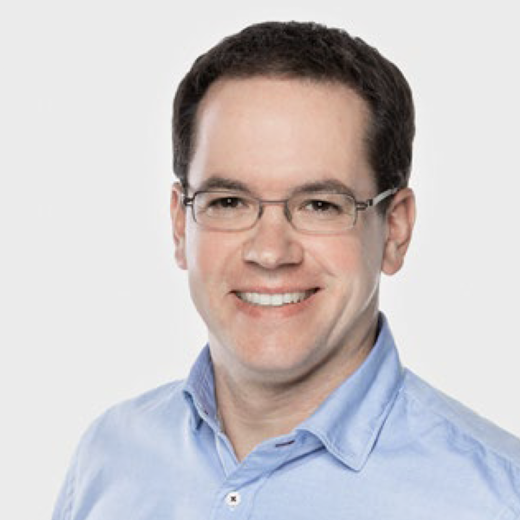
Thinking and acting in networks - a common goal of affected parents and professionals
Vision 2030 - what changes will shape medicine in the next 10 years? Two aspects will play a central role: Firstly, developments in medical possibilities, and secondly, the development of improved networks, including for children and young people with rare diseases. The development of medicine over the next few years will make new therapies possible with the increasing understanding of genetic and functional relationships between systems in the human body.
Specialist in Pediatrics, Head of Rheumatology, Coordinator of the University Center for Rare Diseases Basel
Affected families - therapies for children and support for families: Fin - West syndrome
Of small miracles and the happiness of finally getting help
The family story of Tanja (40) and Simon (45) with their son Fin (5) is impressive and moving. It shows how drastic an impaired child can be for love and life. How happiness becomes a challenge. How fate changes your perspective. And how the alternative form of therapy First-Step gives hope.
Francesca Seegy: First-Step
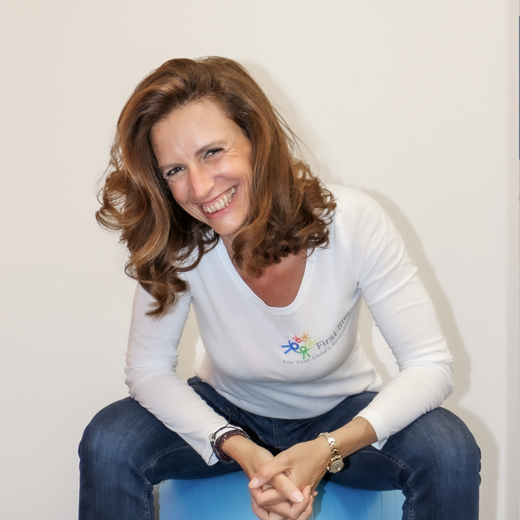
"You respond to the life of the family and the child"
The First Step method was developed by Feldenkrais therapist Shai Silberbusch from Tel Aviv (Israel). Since Tanja and Simon started this therapy with their son Fin, they have seen enormous progress. Francesca Seegy, representative of the First Step method in Switzerland, explains how this is made possible.
Instructor and representative CH, I, DE, First-Step
Affected families - therapies for children and support for families: Simon Elias - Jirásek Zuelzer Wilson syndrome and Hirschsprung's disease
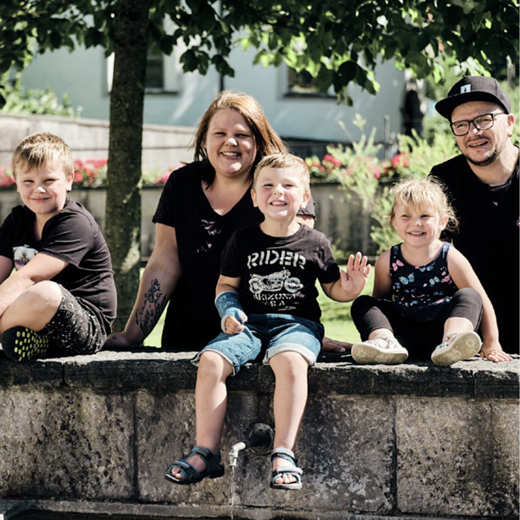
The most important start to life as an Exceptional Schoolchild
Every child has a right to a harmonious start in the school system. But how is this possible when the 5-year-old suffers from an incurable illness, his linguistic and physical development is delayed and both child and parents are overwhelmed? A visit to Simon and his family, who are living through precisely this situation.
Uschi Huber: Curative education service St. Gallen-Glarus
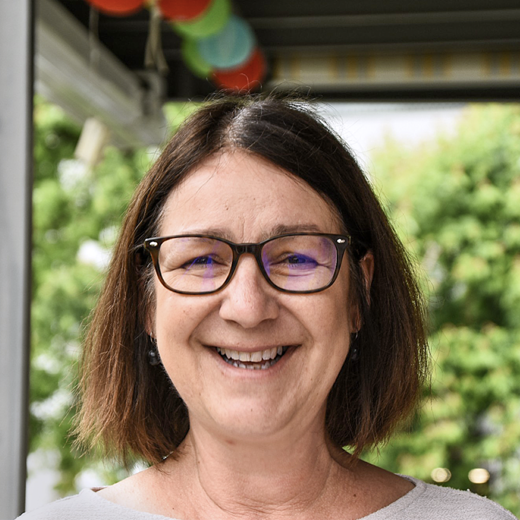
Unfortunately, we can't cure, but we can strengthen and support!
Curative educator Uschi Huber has been working for the curative education service of the St. Gallen-Glarus canton for 20 years. The mother of two daughters is responsible for the early curative education of children aged between a few weeks and six years. She also looks after 5-year-old Simon, who suffers from Jirásek-Zuelzer-Wilson syndrome.
Curative early childhood educator, curative education service
St. Gallen-Glarus
Affected families - therapies for children and support for families: Ronja - epilepsy, ataxia, no diagnosis
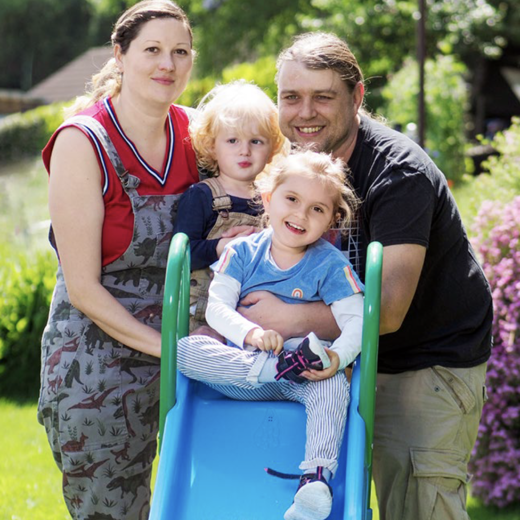
In search of the disease behind the disease
When Ronja has her first epileptic seizure, she is four months old. To this day, her parents still don't know what is wrong with their daughter. Because epilepsies are often caused by other illnesses. But Annette and Bruno are not discouraged. Just like Ronja, who masters her difficult path with a sunny disposition.
Bettina Bernold: Pediatric physiotherapy Filou
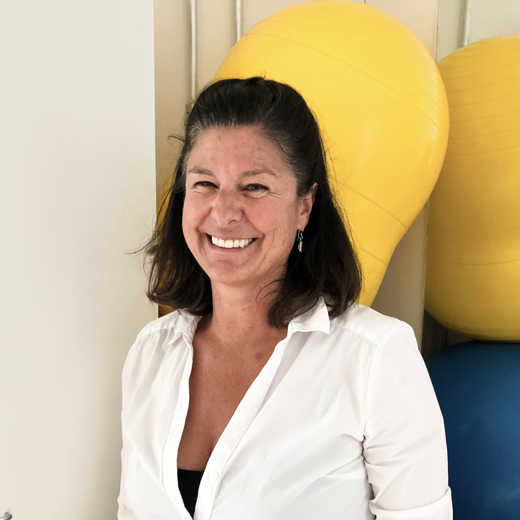
It's about the whole family
Bettina Bernold is a physiotherapist and says that the whole family is needed for therapy with a sick child. After all, progress cannot be ordered and large fluctuations are the rule rather than the exception. In this interview, she talks about her experiences with the controversial Bobath concept.
Physiotherapist, Filou Pediatric Physiotherapy
Affected families - therapies for children and support for families: Leandro - Hypophosphatasia infantile
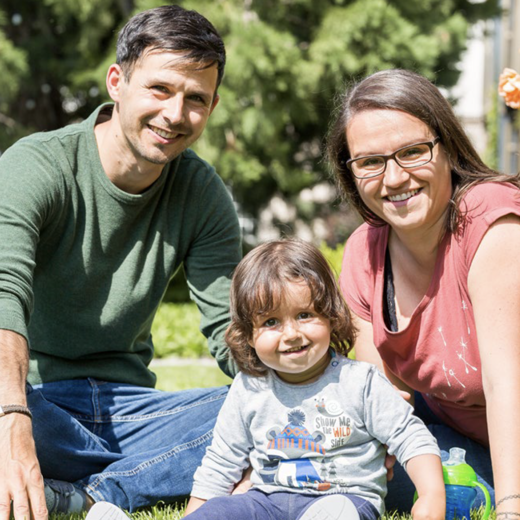
When an anatomical misalignment becomes a rare disease
Every two days, little Leandro is injected with his "super power", a drug that contains the enzyme that is not produced enough in his body. The "super power" helps Leandro to build up the muscles he needs to improve his gross and fine motor skills and ultimately to learn to walk. Thanks to an ingenious method, the drug can be injected successfully and Leandro makes great progress.
Ernst Niemack: Association of pharmaceutical companies in Switzerland
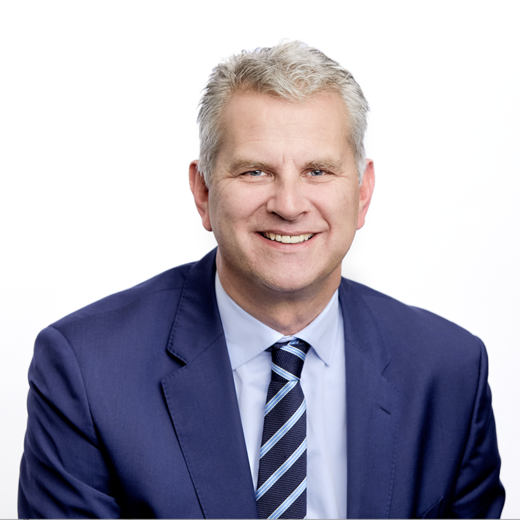
Rapid doubling of basic medical knowledge helps those affected
As Managing Director of the Association of Pharmaceutical Companies in Switzerland (vips), Ernst Niemack represents 67 pharmaceutical companies. He is also responsible for the Rare Diseases Board Committee, which regularly discusses the topic. In this interview, Ernst Niemack explains why the topic is also strategically very important for vips.
Managing Director, vips Association of Pharmaceutical Companies in Switzerland
Affected families - Neurotherapy - Timo Hirnstammblutung
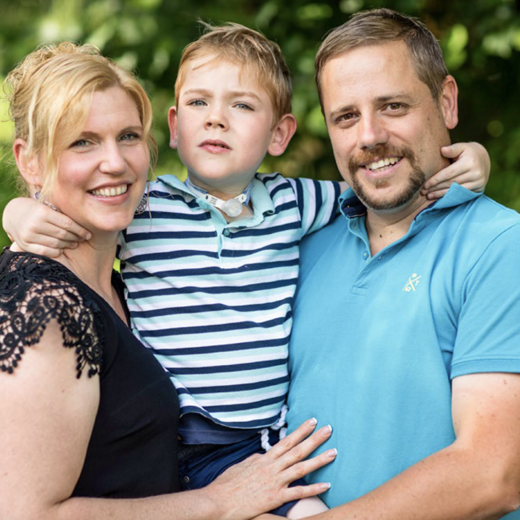
Timo can learn anything - you just have to teach him
A brain stem hemorrhage in the womb damaged Timo's cranial nerves. The doctors thought he would never be able to sit or swallow. Today he runs around and has even started to speak. In the summer, he will join the mainstream kindergarten as an integrated special needs pupil. He is helped by the Padovan method in neurofunctional reorganization (NFR), which enables him to catch up on all the movements he was unable to teach himself as a toddler.
Damaris Bucheli: Bucheli Practice
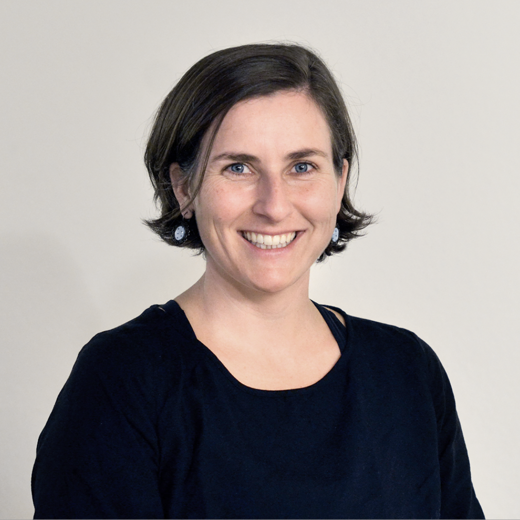
Padovan is not supernatural, but as close to nature as you can get
Damaris Bucheli is a speech therapist with her own practice in Sarnen and additional training in Padovan therapy. Here, early childhood developmental steps are repeated to show the body that it basically has everything it needs to stand up, walk, speak and think. She is convinced that this method can solve many developmental problems.
Speech therapist, Padovan. therapist, FE therapist and stuttering therapist, Bucheli practice, Sarnen
Affected families - Speech therapy - Till - Coffin-Siris syndrome
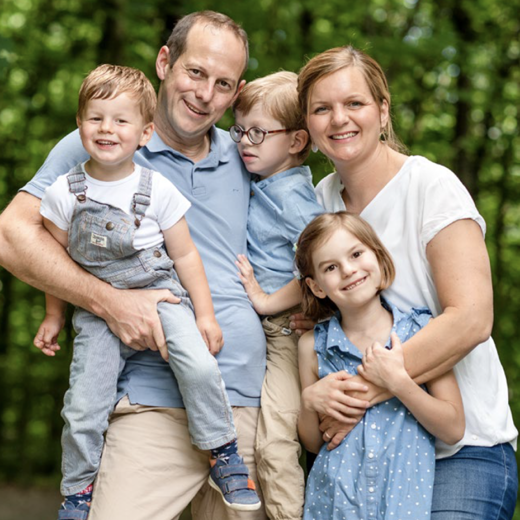
6-year-old Till is affected by Coffin-Siris syndrome, a very rare genetic defect. In addition to motor and cognitive impairments, he has major deficits in his language development. To enable him to communicate with his family, he has developed his very own language and has been supported by a "talker" for some time now.
Article as PDF - KMSK Knowledge book rare diseases N° 3
Esther Glaus: Special Education Center Ausserschwyz (HZA)
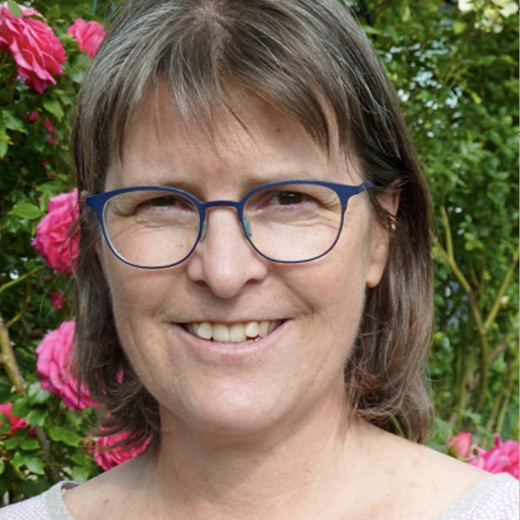
Mental impairment is often associated with speech and language problems. Those affected should therefore benefit from speech therapy at an early stage. This involves promoting communication in the case of speech, language, voice, reading and writing disorders. Esther Glaus is a speech therapist at the Ausserschwyz Special Education Center.
Speech therapist, Ausserschwyz Special Education Center (HZA), Freienbach
Affected families - AAC - Luis Emanuel - Rare genetic disease HIST1H1E syndrome
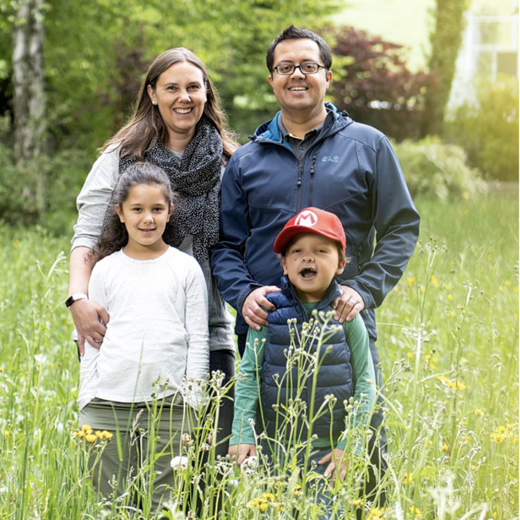
A family of four lives in the Bern region and an iPad is very popular with them. Nine-year-old Lia and six-year-old Luis can't get enough of this device, on which they can look at photos and play games. Not an unusual picture. But for Luis, his iPad has a completely different meaning: it is an indispensable means of communication.
Article as PDF - KMSK Knowledge book rare diseases N° 3
Ana Holenstein-Wyrsch: Curative Education School Bern (HPS)
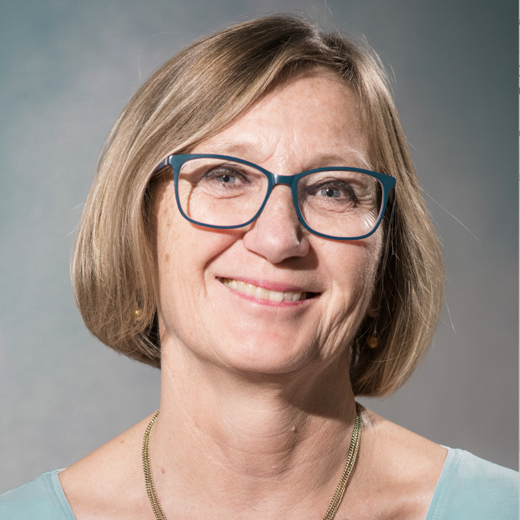
Ana Holenstein-Wyrsch works as a speech therapist at the HPS Bern with Luis and many other children and young people with disabilities. Augmentative and Alternative Communication (AAC) plays an important role in her daily work. The use of various forms of AAC helps her pupils to communicate successfully with or without spoken language.
Speech therapist, curative education school Bern (HPS)
Affected families - Nutritional advice - Elodie - Salla disease
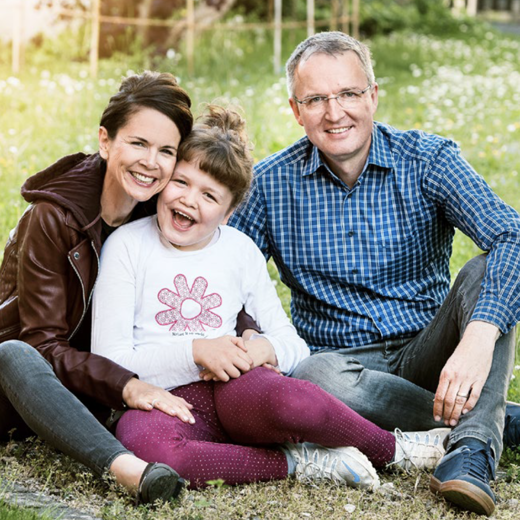
12-year-old Elodie has the rare Salla disease. Type 1 diabetes and coeliac disease also make her life difficult. This combination is a major challenge for her diet and dominates her everyday life. But neither Elodie nor her family let it take away their enjoyment of food, especially not when it comes to pizza.
Article as PDF - KMSK Knowledge book rare diseases N° 3
Christina Rappold: University Children's Hospital Zurich
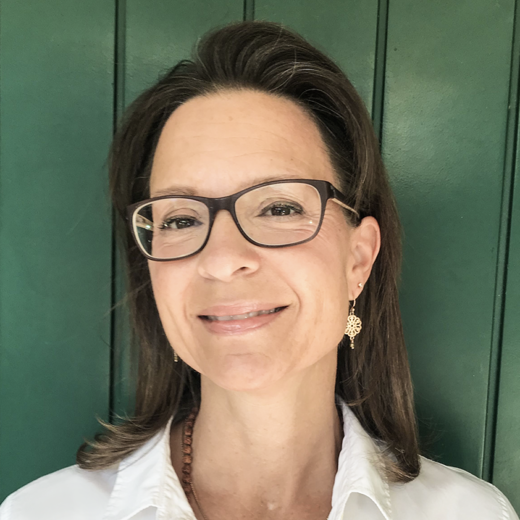
Christina Rappold accompanies children who have a challenging nutritional situation. The nutritionist at Zurich Children's Hospital is part of the Endocrinology/Diabetology Department team. The situation is particularly challenging if there is an underlying illness and then there is also type 1 diabetes and/or coeliac disease.
Diabetes nutrition counseling, University Children's Hospital Zurich
Affected families - Orthopaedics - Luana - rare genetic defect
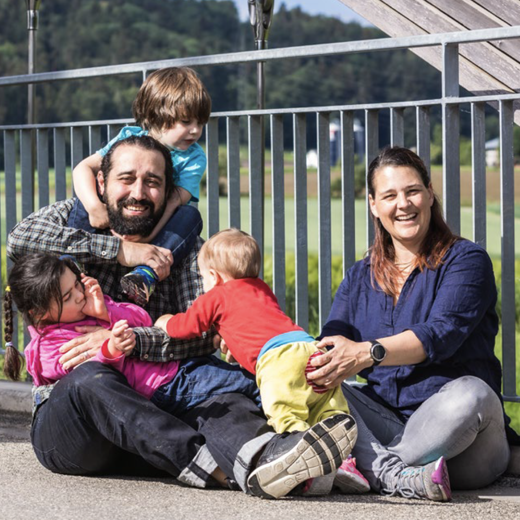
Little Luana has a genetic defect that is so rare that no one knows how she will develop. Her parents, Stefanie and Claudio, want their child to grow up as independently as possible. To achieve this, they sometimes put up with conflicts with doctors and therapists: "We want to encourage other parents to be fierce."
Erich Rutz: The Royal Children's Hospital, Melbourne, Australia
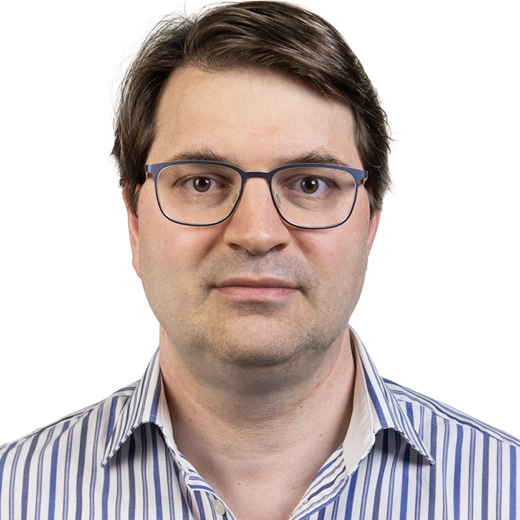
PD Dr. med. Erich Rutz worked for almost 15 years at the University Children's Hospital Beider Basel (UKBB) as euroorthop.de and head of the gait laboratory. Since April 2020, he has been working as pediatric orthop.de and head of the gait laboratory in Melbourne, Australia, at the Royal Children's Hospital, one of the world's largest children's hospitals. He says: "Good communication is key."
Pediatric orthopaedic surgeon, The Royal Children's Hospital, Melbourne, Australia
Affected families - support in hospital, case management - Magali - Rasmussen encephalitis
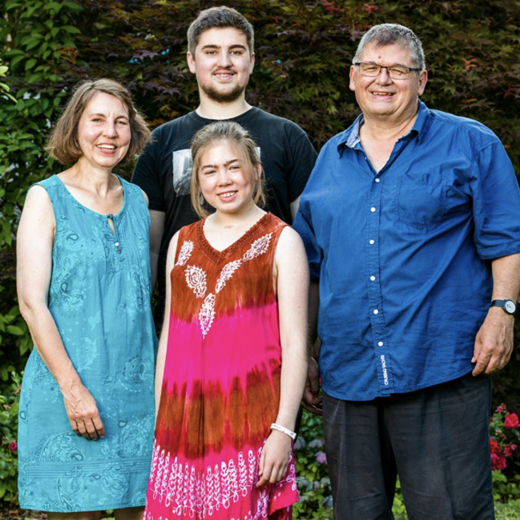
What does it mean for a family of four when their once perfectly healthy daughter suddenly suffers from the rare disease Rasmussen's encephalitis and increasingly loses her ability to speak and move?
Article as PDF - KMSK Knowledge book rare diseases N° 3
Marie Jäger: Palliative Care Team, University Children's Hospital Zurich
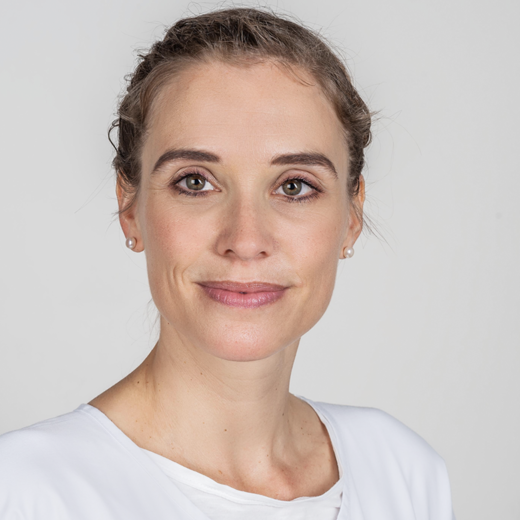
The Competence Centre for Paediatric Palliative Care (PPC) at Zurich Children's Hospital specializes in the comprehensive treatment, care and support of children with incurable diseases. Case management often plays an important role in palliative care. Dr. Marie Jäger, oncology training assistant, works in the team of PD Dr. Eva Bergsträsser, Head of Paediatric Palliative Care at the University Children's Hospital Zurich.
Assistant physician, Pediatric Palliative Care Team, University Children's Hospital Zurich
Article as PDF - KMKS Knowledge Book Rare Diseases N° 3Affected families - support with care
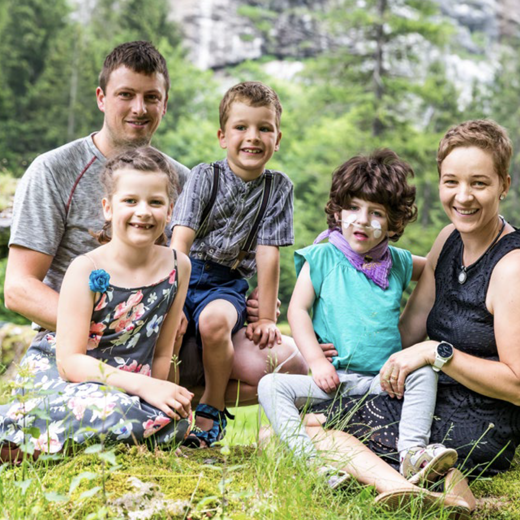
Melina is severely disabled and needs oxygen 24 hours a day. She has been on the brink of death more than once. But the 5-year-old is a little lioness and keeps fighting her way back to life. With the support of Kinderspitex, the family of five now manages a relatively normal everyday family life.
Article as PDF - KMKS Knowledge book rare diseases N° 3Helene Meyer-Jenni: Kinderspitex Zentralschweiz
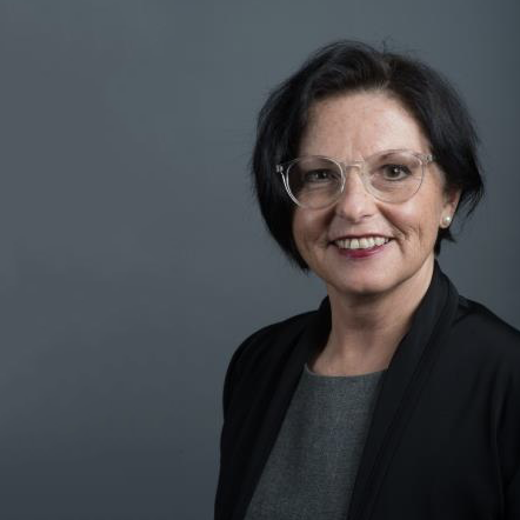
Children who are seriously ill feel most at home with their family and in familiar surroundings. Kinderspitex makes it possible for these children to be cared for at home so that they can take part in everyday family life. They are supported and cared for by qualified nursing staff with experience in pediatric care. Helene Meyer-Jenni is the Managing Director of Kinderspitex Zentralschweiz.
Managing Director of Kinderspitex Zentralschweiz
Affected families - external support - Andrin cerebral palsy (CP), brain structure disorder
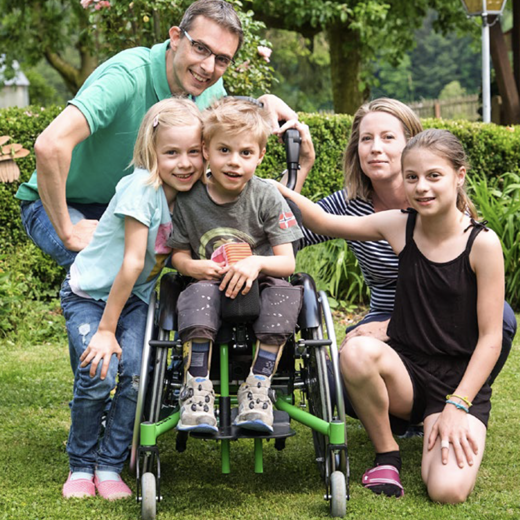
We can finally breathe again
For a long time, it was unclear whether Andrin was suffering from any illness at all, although he cried a lot right from the start. But then, at the age of 9 months, the shocking diagnosis followed that Andrin was suffering from a brain disorder. Very turbulent years followed, but today the family can look to the future with peace of mind.
Article as PDF - KMSK Knowledge book rare diseases N° 3
Daniela de Filippo: "Peter Pan" daycare center, Wittenbach
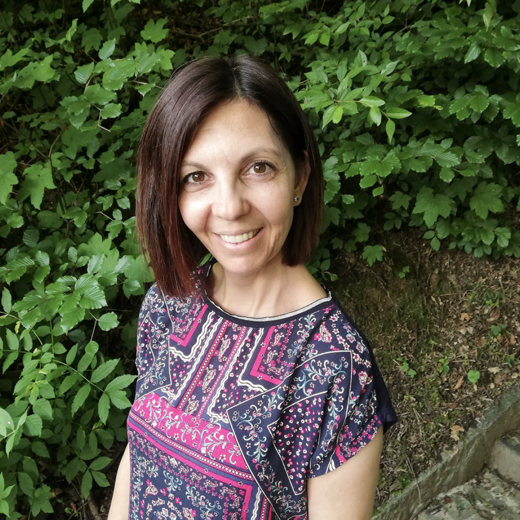
The integrative daycare center "Peter Pan" of the Kronbühl Foundation in Wittenbach is open for children from 3 months to 6 years. For parents of children with special needs, it offers great relief in everyday life. Ms. De Filippo is the team leader at the "Peter Pan" daycare center and takes us on a tour of the day-to-day running of the center.
Team leader at the "Peter Pan" daycare center, Wittenbach
Article as PDF - KMSK Knowledge book rare diseases N° 3
Affected families - Relief in everyday life - Laura - Cornelia de Lange syndrome
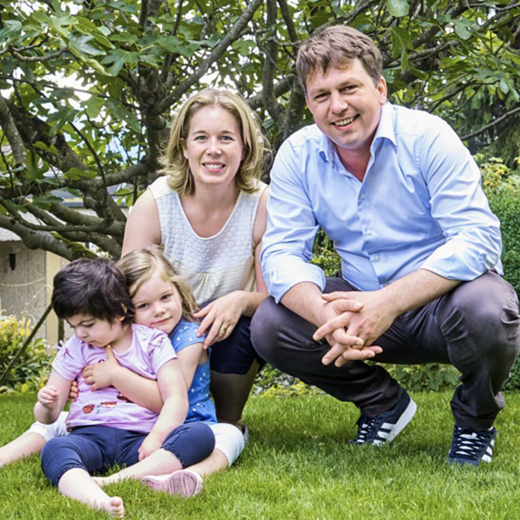
After the birth of Laura, the young parents Melanie and Ronny are diagnosed with Cornelia de Lange syndrome. Laura is short-sighted, hard of hearing and severely physically and mentally impaired. Various respite services provide the parents with time out. In this report, they urge other parents to start respite care as soon as possible.
Article as PDF - KMSK Knowledge book rare diseases N° 3
Franziska Holdener: Insieme Innerschwyz, "Zyt ha" respite service
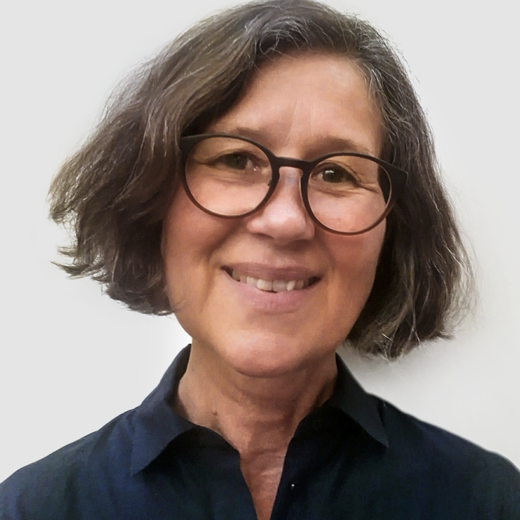
The "Zyt ha" respite service helps people with a disability or developmental disorder to have their own personal leisure time. At the same time, it creates islands of relaxation for families or relatives in their stressful everyday lives. "Zyt ha" provides caregivers who regularly carry out assignments in the Innerschwyz region.
Head of respite service, Insieme Innerschwyz, "Zyt ha" respite service.
Affected families - relief through partial boarding school - Sidney - genetic defect on chromosome 9
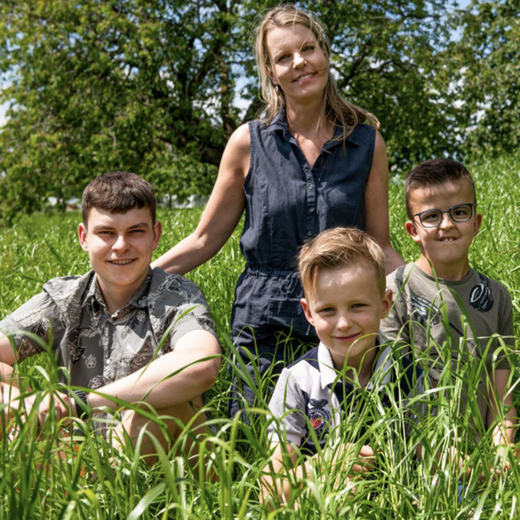
Sidney doesn't just have one home, he has two - and he'll have one for life
12-year-old Sidney will soon be starting senior school at the curative education center. He travels independently by cab from Weggis to Hohenrain. From Tuesday to Friday, he lives on site in the residential group. The partial boarding school enables his single mother to spend time with his three siblings and pursue her work.
Pia Vogler: Hohenrain Curative Education Center
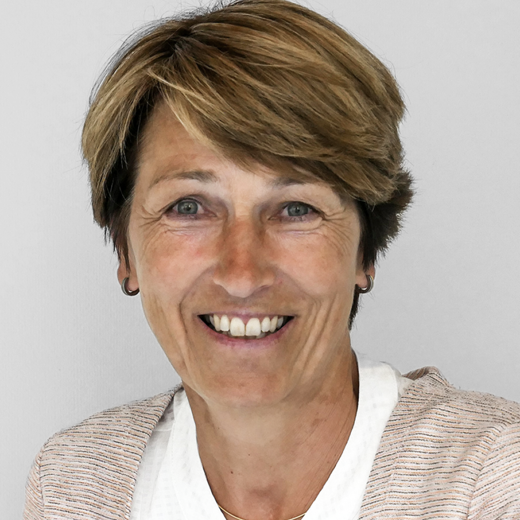
Pia Vogler is principal at the HPZ Hohenrain (HPZH). Around 200 children and young people with a wide range of disabilities are currently taught, supported and cared for. Around a third of the pupils live at HPZH for the entire school week or, like Sidney, spend a few nights on site at the partial boarding school.
Principal, Hohenrain Special Education Center
Affected families - Psychological support for children & parents
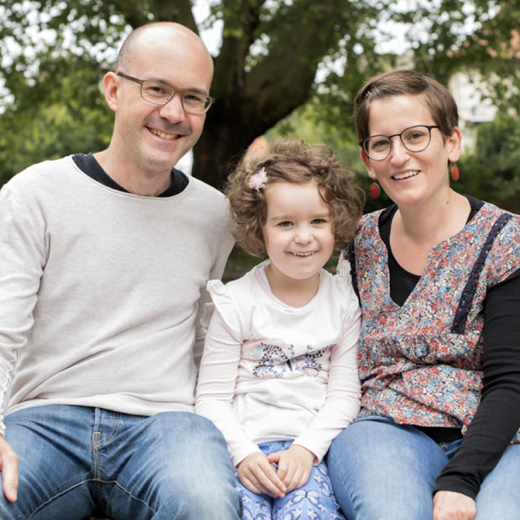
Noémie was only diagnosed with an open spinal canal, a so-called spina bifida, when she was 8 months old. She suffers from neurophatic pain attacks and carries many other rucksacks around with her. The doctors are at a loss and cannot tell the little family where Noémie's complaints come from. Psychological support helps the 5-year-old to find a way of dealing with her pain.
Article as PDF - KMSK Knowledge book rare diseases N° 3
Nina Zeltner: University Children's Hospital Zurich
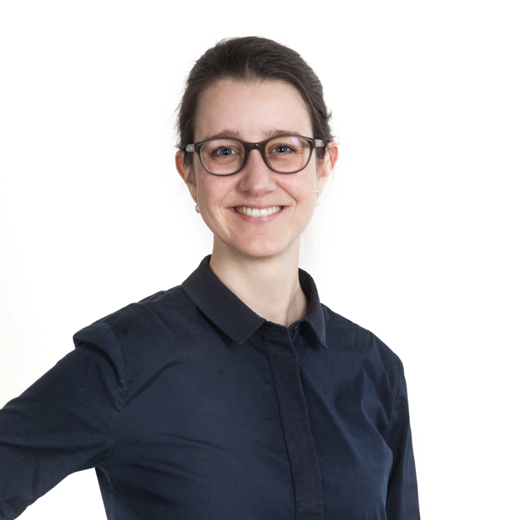
The diagnosis of a rare disease is an enormous burden for affected families. They are plagued by countless questions, fears and uncertainties. In this situation, psychological support can be useful and provide families with guidance. Dr. phil. Nina Zeltner is a psychotherapist at the University Children's Hospital Zurich.
Psychotherapist/Psychologist, University Children's Hospital Zurich
Article as PDF - KMSK Knowledge book rare diseases N° 3
Affected families - financial support IV - Flurin - Noonan syndrome and visual impairment
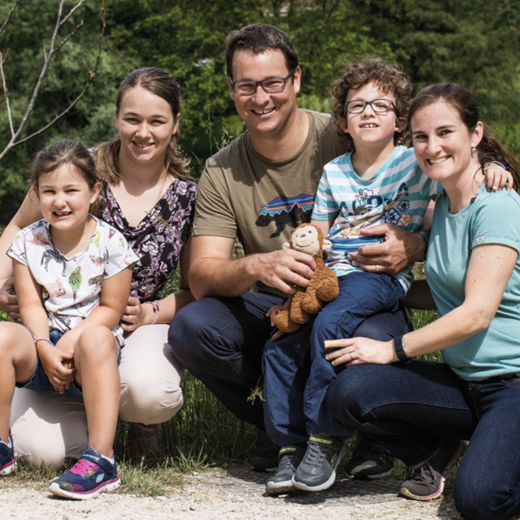
Noonan syndrome is about as common as Down syndrome. And yet most parents are not told about their right to helplessness compensation after the birth of their child. To help these parents, Barbara, Flurin's mother, has set up the website www.noonansyndrom.ch. Because it's not difficult to get help - if you know where to get it.
Stefan Michel: Mosaik Foundation, Pratteln
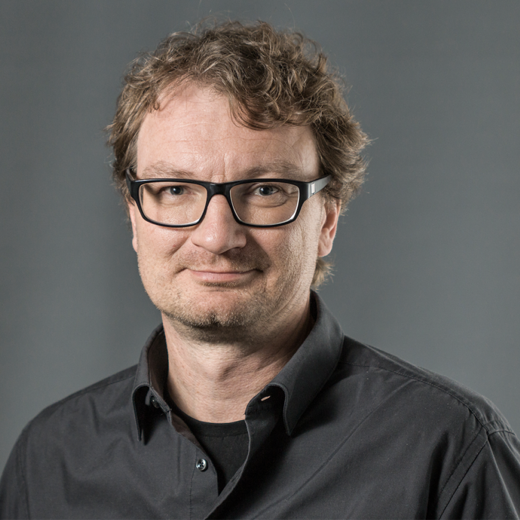
Stefan Michel, Head of Counseling at the Mosaik Foundation in Pratteln, knows the worries of parents. But if they turn to advice centers right from the start, they can be relieved of many problems, he says. Pro Infirmis, Procap, Mosaik - every canton has such advice centers.
Head of Counseling Center, Mosaik Foundation, Pratteln
Affected families - financial support: IV assistance contribution - Maeva - mental impairment, general developmental delay
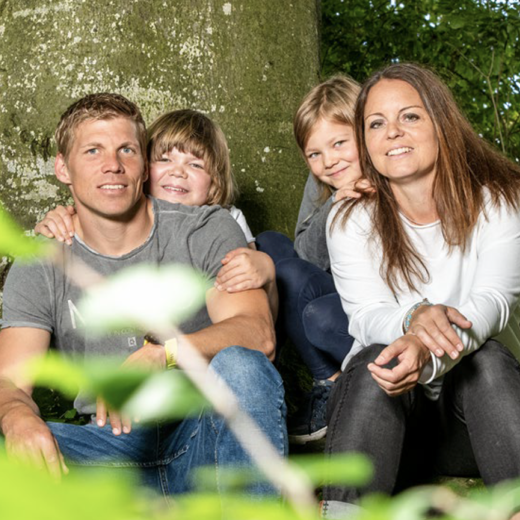
Thanks to the IV assistance contribution, 11-year-old Maeva is able to gain some independence from her family. Maeva's care is very intensive. This also creates valuable space and time for the parents to meet their own needs and ensure that Maeva's younger sister does not miss out.
Article as PDF - KMSK Knowledge book rare diseases N° 3
Roger Wicki: Clarification Services Benefits, IV Lucerne
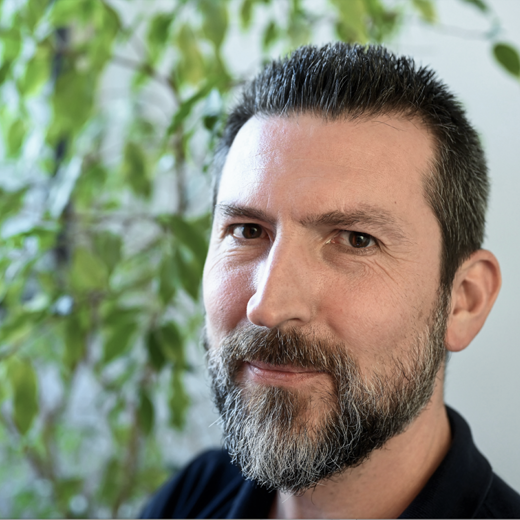
The IV assistance contribution is a valuable support service for many affected children and their families. The cantonal IV offices are responsible for managing individual cases. Roger Wicki is team leader of the IV Lucerne benefits clarification services and answers the most important questions.
Team leader of the benefits clarification services, IV Lucerne
Article as PDF - KMKS knowledge book rare diseases N° 3
Support association for children with rare diseases
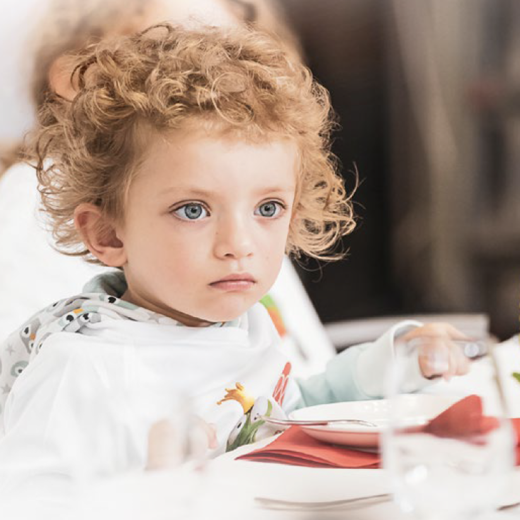
Around 350,000 children and young people in Switzerland are affected by a rare disease. The everyday lives of these families are characterized by uncertainty, anxiety and countless challenges, especially when there is no diagnosis yet. The Support Association for Children with Rare Diseases is committed to helping affected children and their families. We provide direct financial support, create free family events to bring affected families together and raise public awareness of rare diseases. We rely on donations, legacies and patronage contributions to ensure that we can continue to do this in the future.
Article as PDF - KMSK Knowledge Book Rare Diseases N° 3